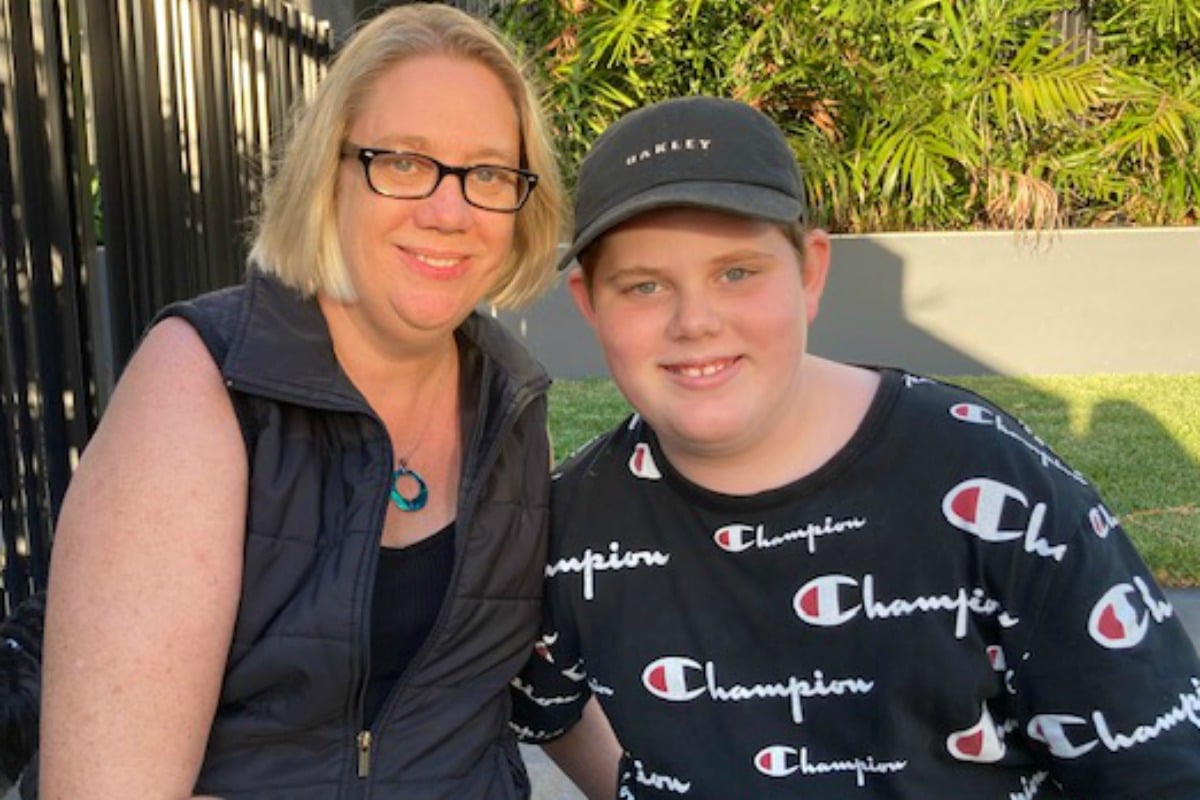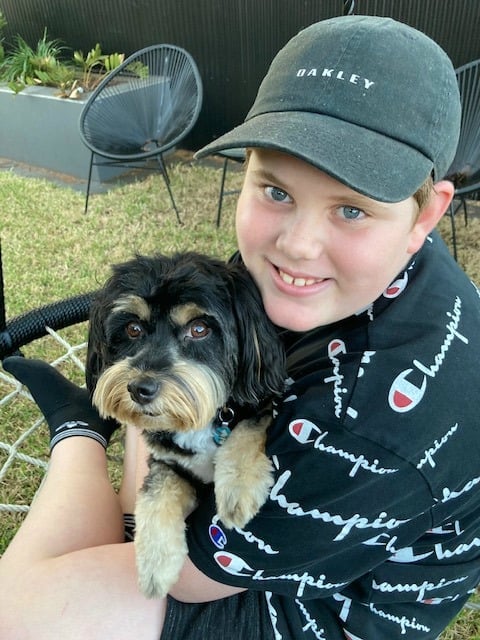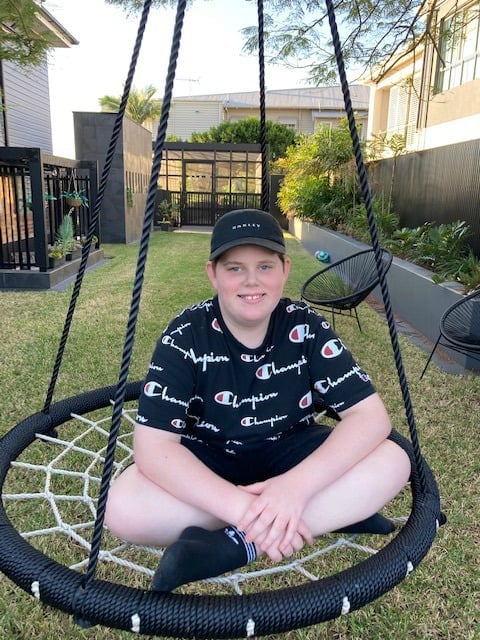
Thirteen-year-old Remi Seminara has lived with both physical and verbal tics. He also has OCD, anxiety and depression, which add a whole new level of complexity to living with Tourette’s Syndrome.
For a six week period last year, he had what’s known as coprolalia – a symptom of Tourette’s that involves involuntary swearing and obscene language. Speaking to Mamamia, his mum Leesa said he would swear from the moment he woke up to the moment he went to sleep.
“We are not just talking voice level, we’re talking screaming. ‘F*** off, s***. F*** you, f***’. It would roll in patterns. He would pause for 10-20 seconds and then it would start again. The only thing that would give him relief was to play computer games, where he would get into a sort of trance. But the second he’d stop, the swearing would be even worse,” she explained.
WATCH: Living with Tourette’s. Post continues after video.
Remi has had kicking tics, violent head thrashing tics, throwing tics, tics where he’d hold his breath or close his eyes. Tics where he’d freeze – sometimes for up to an hour. Tics where he’d jump and then have to spin around. Others where he’d have to shrug his shoulders up and down. Tics that saw him have to punch his sister, or his mother – which would make him burst into tears.



